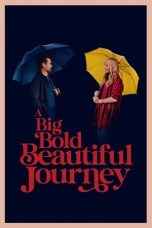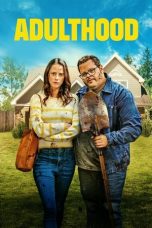After the Storm (2016) Movie Review: Where to Watch Online
“After the Storm,” directed by Hirokazu Kore-eda and released in 2016, is a quiet, introspective film that explores the complexities of family relationships, regret, and the passage of time. Known for his delicate, humanistic storytelling, Kore-eda delivers another poignant drama that resonates deeply with audiences through its subtle portrayal of everyday life and the emotions that underpin it.
Plot Summary
The film follows Ryota Shinoda (Hiroshi Abe), a once-successful novelist who is now struggling to make ends meet as a private detective. Divorced and living in the shadow of his former glory, Ryota is unable to move on from his past mistakes, particularly the dissolution of his marriage and his inability to be a responsible father to his young son, Shingo (Taiyô Yoshizawa).
Ryota’s relationship with his ex-wife, Kyoko (Yoko Maki), is strained, as she has moved on and is trying to build a stable life for herself and their son. Despite his shortcomings, Ryota longs to reconnect with Shingo and rekindle a relationship with Kyoko, even though he knows deep down that this may be impossible.
As Ryota spends time with his elderly mother, Yoshiko (Kirin Kiki), the family comes together during a typhoon, forced to confront their unresolved issues. The storm serves as a metaphor for the emotional turmoil each character experiences, as they grapple with the past and the uncertain future.
Character Performances
Hiroshi Abe delivers a nuanced performance as Ryota, capturing the character’s deep-seated regrets and quiet desperation. Abe’s portrayal of Ryota is both sympathetic and frustrating, as he embodies a man who is unable to let go of his past failures and is constantly trying to reclaim what he has lost. His performance is marked by subtlety, conveying Ryota’s internal struggles through small gestures and expressions.
Kirin Kiki, a frequent collaborator with Kore-eda, is outstanding as Yoshiko, Ryota’s mother. Her character brings warmth and humor to the film, serving as a grounding force for the fractured family. Kiki’s portrayal of Yoshiko is filled with wisdom and resilience, offering a contrast to Ryota’s aimlessness.
Yoko Maki’s performance as Kyoko is equally compelling. She portrays a woman who has been hurt by Ryota’s actions but is determined to move forward for the sake of her son. Maki’s understated performance adds depth to Kyoko’s character, making her both relatable and admirable.
Taiyô Yoshizawa, as Shingo, adds a layer of innocence to the film. His interactions with Ryota are bittersweet, highlighting the gap between the father’s intentions and his ability to fulfill them.
Themes and Audience Appeal
“After the Storm” is a film that explores the themes of regret, forgiveness, and the passage of time. Kore-eda, known for his ability to delve into the intricacies of family dynamics, uses these themes to craft a narrative that is both deeply personal and universally relatable.
The film’s title itself is a metaphor for the emotional storms that the characters must weather as they come to terms with their lives. Ryota’s inability to move past his glory days as a writer and his struggles to be a better father and son resonate with anyone who has faced the challenge of reconciling their ambitions with reality.
At its core, “After the Storm” is about the importance of family, the inevitability of change, and the hope that, even after the most difficult times, there is always a possibility for renewal. The film’s quiet pacing and focus on everyday moments create a contemplative atmosphere, encouraging viewers to reflect on their own lives and relationships.
Kore-eda’s direction is characterized by its attention to detail and the way he captures the small, seemingly insignificant moments that make up the fabric of daily life. This approach makes “After the Storm” a film that lingers in the mind long after it ends, as it invites viewers to find meaning in the ordinary.
Visuals and Direction
Kore-eda’s visual style in “After the Storm” is simple yet evocative. The film is set in a modest, working-class neighborhood in Tokyo, and the cinematography reflects the intimacy and realism of the story. The use of natural lighting and unembellished settings creates a sense of authenticity, allowing the characters’ emotions to take center stage.
The storm that hits during the film’s climax serves as both a literal and metaphorical turning point. Kore-eda uses the typhoon to bring the characters together, forcing them to confront their unresolved issues. The storm scenes are shot with a restrained intensity, mirroring the emotional turbulence the characters experience.
The film’s pacing is deliberate, allowing the story to unfold naturally and giving the audience time to connect with the characters on a deeper level. Kore-eda’s ability to portray the complexity of human relationships through subtle interactions and quiet moments is what makes “After the Storm” a standout in his body of work.
Streaming Availability: Where to Watch “After the Storm” Online
If you’re interested in watching “After the Storm,” it is available on several streaming platforms, especially in the United States.
Hulu
“After the Storm” is available for streaming on Hulu. Subscribers can watch the film as part of Hulu’s extensive library, which includes a wide range of independent and international films. Hulu’s subscription plans start at $7.99 per month with ads, or $14.99 per month for the ad-free experience.
Criterion Channel
For fans of international and arthouse cinema, “After the Storm” is available on the Criterion Channel. The platform specializes in classic and contemporary films, offering a carefully curated selection of titles. The Criterion Channel’s subscription costs $10.99 per month or $99.99 per year.
Amazon Prime Video (Rental/Purchase)
“After the Storm” can also be rented or purchased on Amazon Prime Video. Rental prices typically range from $3.99 to $4.99 for HD quality, and purchasing the film generally costs between $9.99 and $14.99. Amazon Prime Video allows you to watch the film on a variety of devices, making it a convenient option.
Apple iTunes
Apple iTunes offers “After the Storm” for both rent and purchase. Rentals usually start at $3.99 for HD quality, with the option to purchase the film for around $14.99. The movie can be streamed on Apple devices like iPhones, iPads, and Apple TVs, or through the Apple TV app on compatible devices.
Google Play Movies & TV
Google Play Movies & TV provides “After the Storm” for rental or purchase. The rental prices are similar to other platforms, typically between $3.99 and $4.99, with purchase options ranging from $9.99 to $14.99. This platform is accessible on Android devices and through web browsers.
Vudu
Vudu offers “After the Storm” for rent or purchase, with rental prices starting at $3.99 and purchase prices around $14.99. Vudu supports streaming in various formats, making it a versatile option for different viewing preferences.
Final Thoughts
“After the Storm” is a beautifully crafted film that showcases Hirokazu Kore-eda’s skill in exploring the intricacies of human relationships. The film’s quiet, introspective approach invites viewers to reflect on their own lives, making it a deeply personal viewing experience.
With its strong performances, particularly from Hiroshi Abe and Kirin Kiki, and its sensitive exploration of themes like regret, forgiveness, and family, “After the Storm” stands as one of Kore-eda’s most poignant works. The film’s ability to find meaning in the mundane and its portrayal of the enduring bonds between family members make it a must-watch for fans of thoughtful, character-driven cinema.
Available on multiple streaming platforms, “After the Storm” is easily accessible for those looking to experience this touching and resonant film. Whether you’re a longtime fan of Kore-eda or new to his work, “After the Storm” offers a moving reflection on life’s challenges and the quiet moments of connection that make it all worthwhile.
















